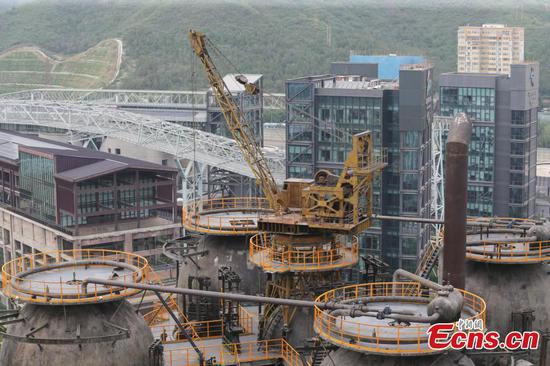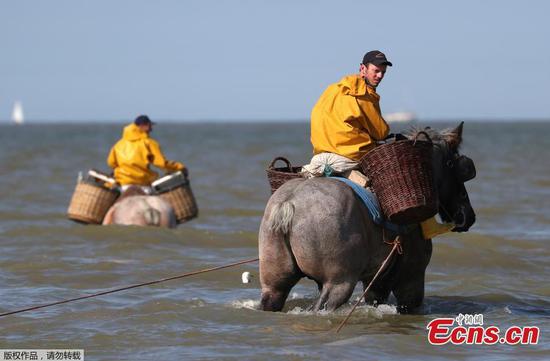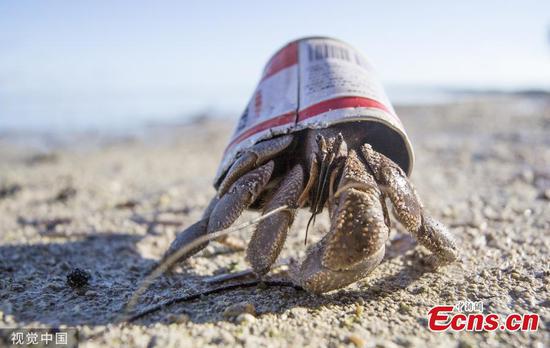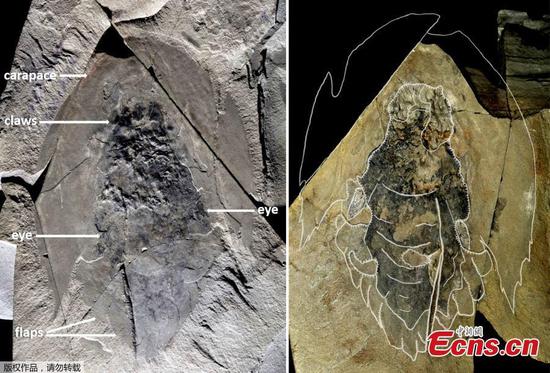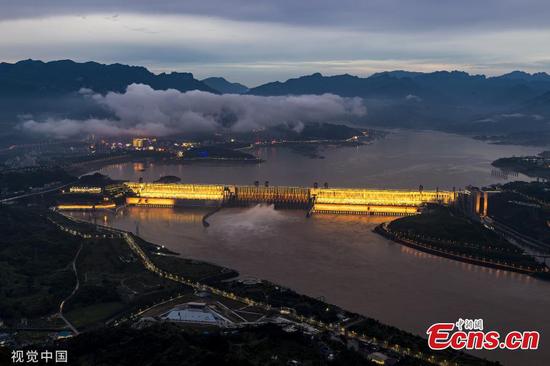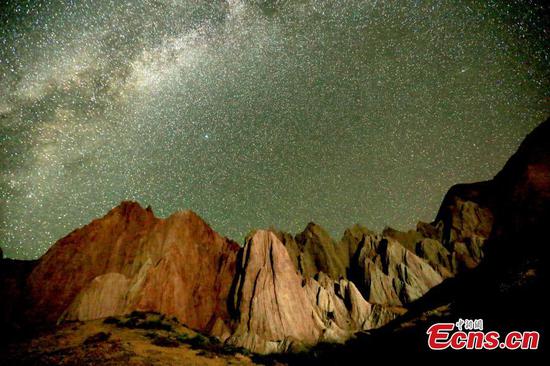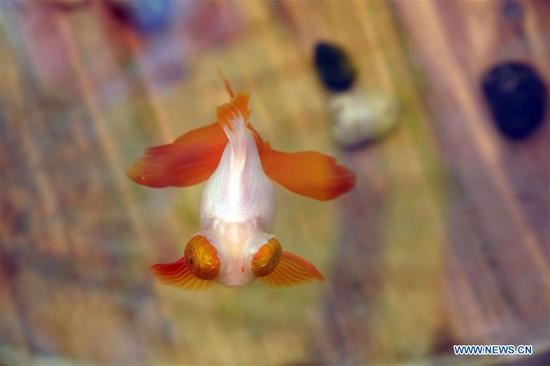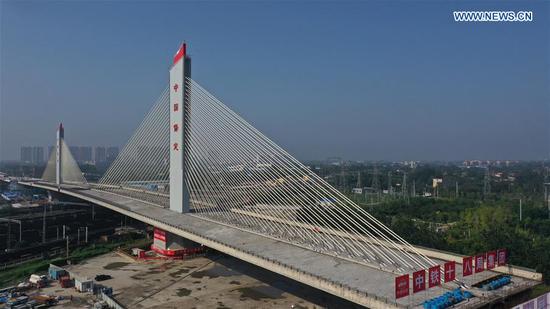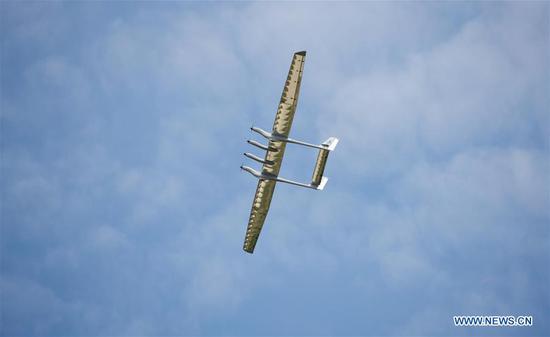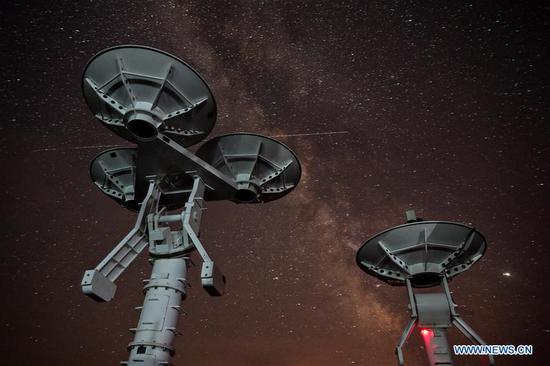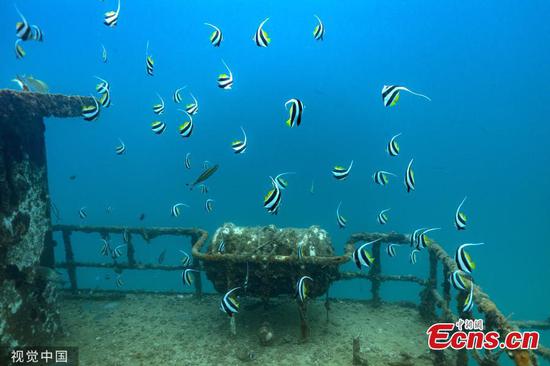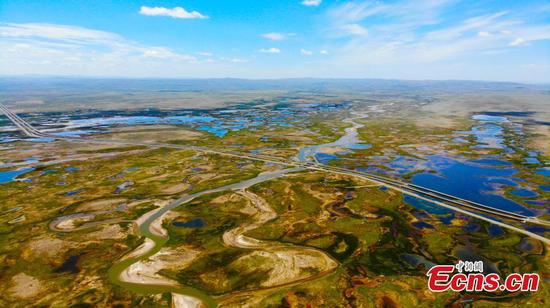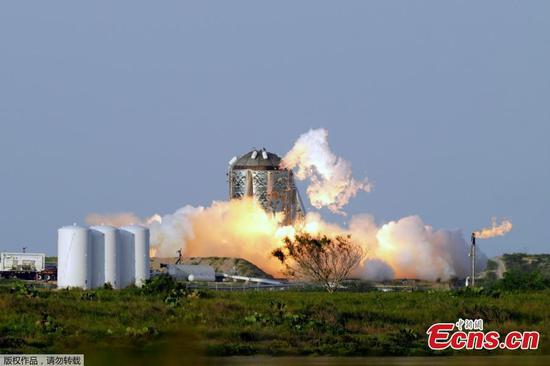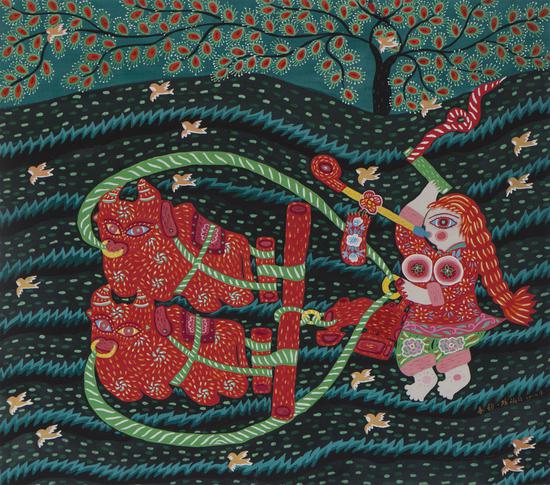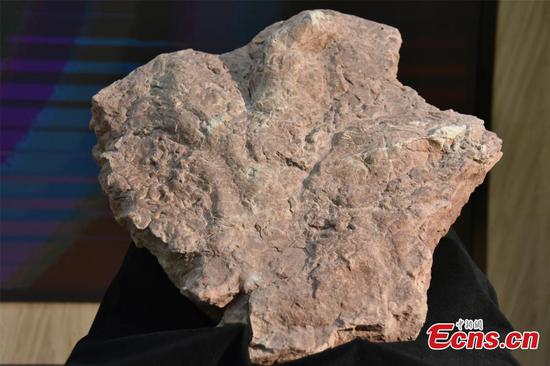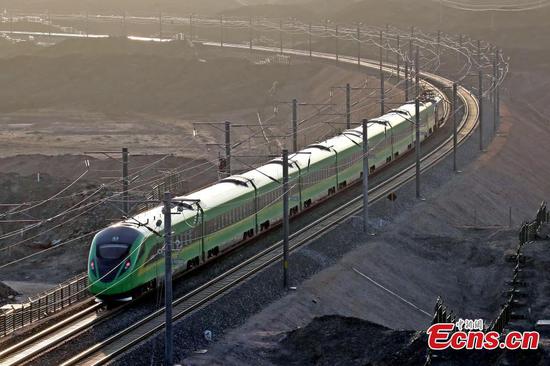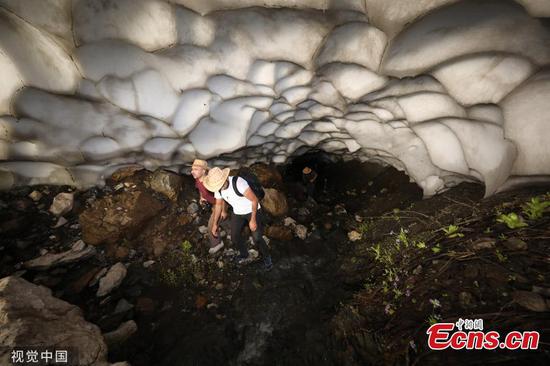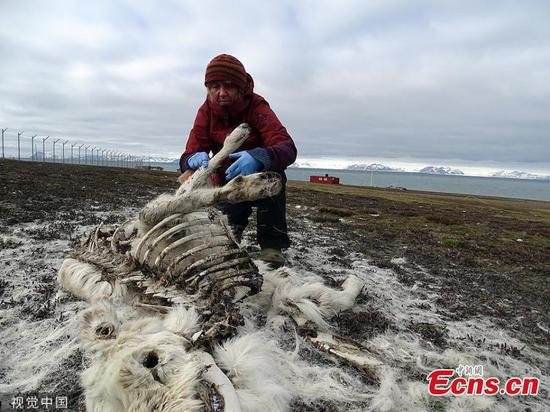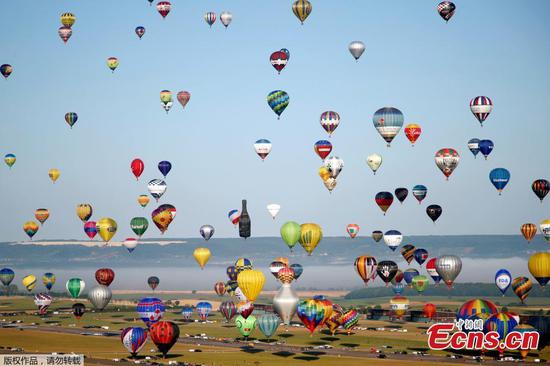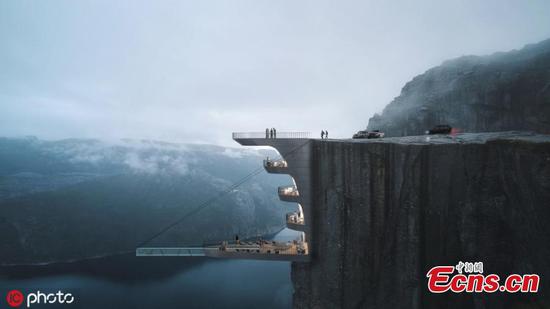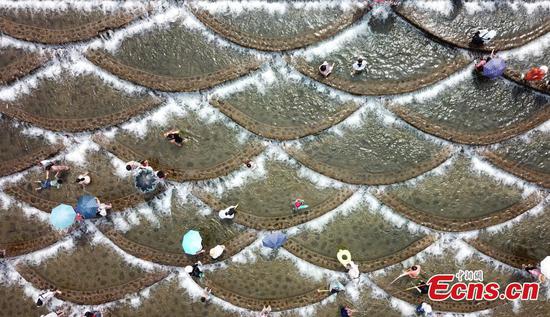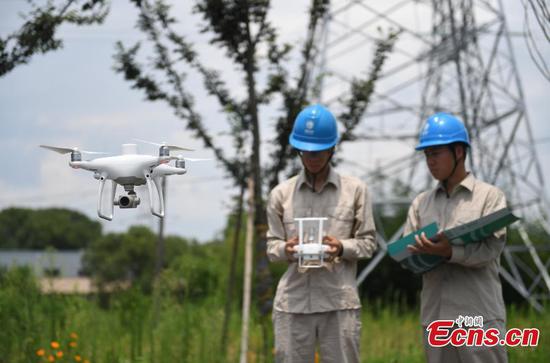
A flock of Thorold's deer, also known as white-lipped deer, run on grassland in Gongbo Gyamda County, southwest China's Tibet Autonomous Region. Thorold's deer are China's first-class national protected animals. They live in the high and cold grasslands of the Tibetan Plateau. (Photo/Xinhua)
Atmospheric pollution has accelerated the glaciers melting in the world's Third Pole which covers the Tibetan Plateau and surroundings, as high levels of air pollutants are extending from South Asia and accumulating on the southern slope of the Himalayas, an international research team found recently.
The Third Pole region is noted for its high rates of glacier melt and the associated hydrological shifts that affect water supplies in Asia, the research findings noted.
Atmospheric pollutants contribute to climatic and cryospheric changes through their effects on solar radiation and snow and ice surfaces.
The research team led by research fellow Kang Shichang from the State Key Laboratory of Cryospheric Science under the Northwest Institute of Eco-Environment and Resources, Chinese Academy of Sciences, also found that atmospheric pollution generated in South Asia can be transported via the Indian monsoon and westerlies, and thus reaches the hinterlands of the Third Pole region.
Kang told the Global Times that his team researched in a number of South Asian countries and the country that emitted the most air pollution was India, given its large volume, followed by Pakistan.
"India is well aware of the seriousness of pollution in its country. We hope India can control its air pollution and enhance international cooperation, but funding is a problem," Kang said.
Kang noted that he has been researching this area for more than a decade and wants to raise the public awareness of environmental protection.









